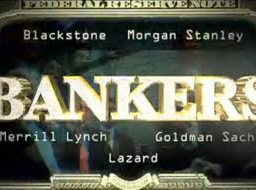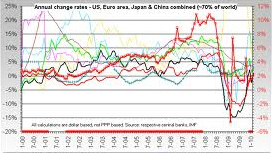


Why do we assume that they are independent from our control and that they must be left alone. They are simply part of the institutions we all need to run our economy, businesses and personal lives.
They do have a central role in ensuring the efficiency of our economy. So much so, that as we have seen when they get it wrong it effects every aspect with global implications.
CST has developed a theme here, working from what we need the banks to do (not the other way round as they would like). The Banks should:
If Banks & other financial institutions wish to enter a market position, they must only do it with funds provided directly for this use. The worst case position (ie total loss on all positions) must never be more than the total of these funds. Better to have these market playing institutions as totally independent in ownership and funding from the general banking provision.
So, here we go again!
The Greek farce continues. Spain joins in. How about scuppering the problem forever?
The final solution – every major country nationalises their banks (UK has only a few to go!) Each country makes sure their (nationalised) banks adhere to a general regime of business and separates ‘risk investments' into clearly defined separate businesses (the risk belonging to the directors and shareholders, by law the risks must not exceed the companies wholly owned liquid assets).
Each nation then makes a banking stability pledge to help any bank that requires additional liquidity in the event of difficulties, thus ensuring the stability and integrity of the banking sector world-wide.
Such a well organised and funded banking system could ensure (again via strict rules) that the banks loaned to smaller businesses - as these are always the engine for innovation (leading to real growth).
Is this too difficult? Each nation would ensure that their own banks followed the rules (with oversight by an agreed independent body). No sovereignty is lost, no country gains an advantage, the business sector gains stability, the markets cannot destabalise the system, everyone wins.


CST- It seems amazing that even after the major issues across the world with Banks 'taking us all for a ride' that they still have any authority at all.
Why are the people of the UK, (and indeed the world), so frightened of standing up to these 'corrupt' institutions?
Why is it that people in general still do not understand that the Banks are simply playing their own game and care absolutely nothing about our society? It is ludicrous that we allow a few people in the Banks to gamble our money on anything they fancy to provide these few with short term gains and in the process undermining the very foundations of global wealth and trade.
Nearly 100 years ago the writer and journalist H.G. Wells said this about the Banks:
"The system had grown up as a tangle of practice. It was evolved, not designed. There was never any attempt to measure the justice or ultimate consequence of any practice."
And Wells gives his advice for the future:
"He made profit-making banking, that Old Man of the Sea, get of the back of enterprise... Banking was a public function ... the distribution of credit was a vital part of government"
(From the Shape of Things to Come, H.G. Wells 1933)
And we still have not learnt the lessons from history. At what point will we take back control of our money (all of it), as it represents the wealth of our world and not just a plaything for the super-rich to get richer whatever the consequences for people, governance and business - across the world?